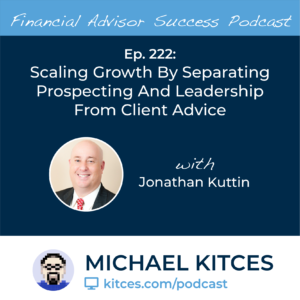When it comes to navigating the world and understanding our surroundings, abstraction (i.e., the process of extracting the higher-level essence of something to formulate general ideas of concepts) is very important. We are constantly formulating and updating mental maps of our world for the purpose of carrying out goals. Abstraction is particularly relevant in a field like financial planning, where we deal with abstractions that are not only more complex than simple, physical objects (e.g., a tangible concept like a chair), but also that represent concepts that are complex and abstract themselves (e.g., the concept of preparedness for retirement).
One difficulty with developing abstractions is that ‘ideal’ levels of abstraction are simply not self-evident. In one context, a ‘high-resolution’ abstraction (e.g., one with very specific information, like the scientific name for a certain species of rattlesnake, 'Crotalus atrox') may be ideal, whereas in another context a ‘low-resolution’ abstraction (e.g., a broader, less detailed description, such as ‘living organism’) may be best. Yet, in other circumstances, some middle-ground abstraction (e.g., ‘rattlesnake’) may be most useful. The level of abstraction that is ideal depends on many factors such as one’s environment, the knowledge level of those we are communicating with, and the need to convey certain pieces of information. This is why a group of advisors can communicate just fine using industry jargon, while that same industry jargon could be a barrier to communicating with a client.
Perhaps one of the best abstractions ever developed within financial planning is the Morningstar Style Box. By capturing two of the most crucial dimensions of equity returns within a single, easy-to-read graphic, the Morningstar Style Box conveys a tremendous amount of important information about a stock portfolio in a highly efficient manner. The Morningstar Style Box also has the advantage of reporting two primary dimensions, which lends itself to presentation in a two-dimensional graphic that remains easy for our brains to interpret. However, once we get out to three dimensions (and particularly four or more dimensions), the added complexity can actually diminish our understanding rather than enhance it.
Despite the success of abstractions such as the Morningstar Style Box, however, abstractions used for many other key concepts within financial planning are severely lacking. For instance, ‘probability of success’ – the primary metric used for conveying preparedness for retirement within most modern planning software – is known to have a number of issues. In particular, ‘probability of success/failure’ entirely misses the dimension of ‘magnitude of success/failure’, which is highly important for developing a rich qualitative understanding of a retiree’s plan dynamics. For instance, a plan with a high probability of failure and a low magnitude of failure is qualitatively different than a plan with a high probability of failure and a high magnitude of failure, but in a world where only ‘probability of success’ is reported, then these two plans will look identical.
Notably, the problem with many Monte Carlo-based retirement analyses is not necessarily with Monte Carlo itself, but with trying to find a better abstraction for communicating Monte Carlo results. At a minimum, an ideal abstraction likely needs to cover both relevant likelihood and magnitude of success/failure. Furthermore, an ideal abstraction should convey that success/failure themselves can be a bit inaccurate in a world where ‘adjustment’ can avoid the most extreme outcomes. And finally, we also want to consider what may even be most important to report to a client in the first place, as it is possible that Monte Carlo metrics can largely live behind the scenes while planning results can be reported in a manner that is more directly relevant to clients (e.g., How much can my portfolio go up/down before I have to make a change? How big of a change would I need to make?).
Ultimately, the key point is to simply acknowledge how financial advisors abstract results that are reported to clients matters. The ideal level of abstraction is not self-evident and varies by context, but it is quite clear that ‘probability of success’ leaves a lot to be desired. We’re still at an early stage of figuring out what those abstractions may be, and most dominant platforms currently have quite limited ability to report anything other than the focal point of ‘probability of success’. We, as advisors, should be thinking about developing better ways to communicate with clients and, if the current tools don’t provide ideal levels of abstraction, letting software providers know that we want more than ‘just’ probability of success!

 Welcome back to the 223rd episode of Financial Advisor Success Podcast!
Welcome back to the 223rd episode of Financial Advisor Success Podcast! Welcome back to the 222nd episode of the Financial Advisor Success podcast!
Welcome back to the 222nd episode of the Financial Advisor Success podcast!
